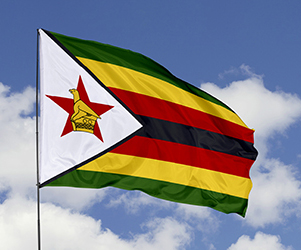Colombia
Nigeria
Angola
Cameroon
Iraq
Turkey
Myanmar
Zimbabwe
Colombia

NASUWT works in solidarity with teacher trade unionists in Colombia who are on the front line of defending the right to education, trade union freedoms and democracy, often at great personal risk.
Colombian teachers and their unions, particularly FECODE and the wider CUT federation, have faced decades of violence, intimidation and criminalisation simply for standing up for public education and social justice.
By partnering with organisations such as Justice for Colombia (JFC), NASUWT is able to offer meaningful support to colleagues whose daily working conditions are shaped by conflict and repression. Their struggle is deeply connected to our core values of equality, peace and the right of all teachers to organise without fear.
Our support is practical, sustained and rooted in long-term relationships. Through JFC, we have hosted Colombian trade unionists at our conferences, taken part in international delegations to the country and maintained regular contact with union leaders and activists, including those recently targeted by smears and threats.
We advocate on their behalf within international union bodies and raise concerns with governments and international institutions when their rights are under attack.
NASUWT also backs campaigns led by Colombian teacher unions to improve working conditions, protect union autonomy and promote inclusive education reforms. In doing so, we amplify their voices and ensure the international community remains engaged in the struggle for justice and peace in Colombia.
Nigeria

NASUWT’s engagement with the Nigeria Union of Teachers (NUT) reflects our commitment to strengthening the global voice of the profession and building lasting relationships based on shared values of solidarity, professionalism and the right to high-quality education for all.
Nigerian teachers face complex challenges, including large class sizes, underfunded systems and threats to their professional autonomy, but they are also leading the way in advocating for reform, innovation and stronger public services.
We recognise the importance of supporting our Nigerian colleagues in this work and learning from their experiences.
Through our collaboration with the NUT and other partners, NASUWT has developed a programme of joint activity that focuses on union capacity building, policy influence and government engagement.
Most recently, we hosted a senior delegation of Nigerian trade unionists at our national headquarters for a two-day programme on ‘Strengthening Union-Government Collaboration in Education’.
Sessions explored how NASUWT:
-
works within the UK’s political structures;
-
engages in formal consultation with government bodies; and
-
collaborates with other unions to achieve change.
Nigerian colleagues brought deep insight and contributed to workshops designed to translate these lessons into their own national and state-level contexts.
Looking ahead, our shared work will continue to evolve in response to emerging priorities.
One key area of future collaboration is mental health in education, a challenge facing teachers in both our countries. NASUWT is committed to working with Nigerian partners to explore how unions can play a leading role in improving mental health support for teachers and pupils alike.
By continuing to build these relationships, we aim to foster mutual learning, strengthen professional solidarity and contribute to a global education movement rooted in respect, dignity and wellbeing.
Angola

NASUWT’s partnership with teacher trade unionists in Angola is centred on building union strength from the ground up.
We believe that supporting the development of confident, knowledgeable and empowered workplace representatives is fundamental to achieving lasting improvements for teachers and this belief underpins our work with SINPROF, Angola’s education union.
Teachers in Angola, like those across the world, face a range of professional and political challenges and effective union structures are vital for securing better conditions and giving teachers a voice in decision-making.
Our collaboration is practical and purposeful. Drawing on our own experiences in the UK, we have shared detailed resources with SINPROF to support the creation of a national training programme for union activists and workplace representatives.
These materials cover core trade union principles such as lay democracy, collective bargaining, workplace rights and conflict resolution. They also focus on practical skills, from negotiating with school leadership to promoting union equality, encouraging member participation and organising for change.
By supporting SINPROF to localise and adapt this training, we aim to help build a strong, democratic trade union movement that can represent teachers effectively in every school and every region of Angola.
As the relationship grows, we hope to explore further opportunities for mutual learning, particularly in areas such as promoting equality and tackling discrimination, as well as addressing the increasing impact of teacher stress and poor mental health.
Like our partners in Angola, we are committed to ensuring that every teacher has access not only to fair treatment and decent working conditions, but also to the professional support they need to thrive.
Cameroon

NASUWT’s international work is built on meaningful relationships with teacher trade unionists who share our commitment to rights, democracy and quality education. Our emerging partnership with trade unions in Cameroon reflects those values and responds to the very real challenges faced by teachers in the country.
Teachers and their unions in Cameroon have faced harsh responses to industrial action, including intimidation and threats of disciplinary action simply for demanding fair treatment and improved conditions.
NASUWT stands in solidarity with those resisting such repression and seeking to strengthen the voice of the profession.
This work is part of a wider programme of international solidarity, grounded in mutual respect and focused on building union capacity to influence policy, defend members’ rights and uphold democratic values in education.
Our aim is to support Cameroonian teacher unions as they strengthen their advocacy, protect their members and promote social justice in education.
Iraq

NASUWT is proud to support the development of strong, inclusive teacher unions across the world - and nowhere is this more vital than in conflict-affected regions where education systems and trade union freedoms are under strain.
In Iraq, we are working in partnership with the Kurdistan Teachers’ Union and Iraqi Teachers’ Union to invest in the leadership of women within the trade union movement. Together, we are developing a training programme aimed at empowering women to take up leadership roles and influence change both within their unions and in the broader education system.
The content reflects the complex realities facing women trade unionists in the region. Sessions explore union values, gender equality, leadership, advocacy, structural reform and the critical importance of work-life balance.
By supporting this initiative, NASUWT is helping to build a more representative and resilient trade union movement in Iraq, one that not only defends teachers’ rights but also challenges the systemic barriers that hold women back from decision-making and leadership.
This work is part of our broader commitment to equality and global solidarity, ensuring that the power of union organising is accessible to all.
Turkey

NASUWT has a long-standing commitment to standing with teacher trade unionists in Turkey, where the rights and freedoms of teachers have been systematically undermined.
Our solidarity with Eğitim Sen, the independent education union in Turkey, is grounded in shared values: a belief in democracy, freedom of association and the right to quality public education for all.
In recent years, those values have come under increasing attack. Teachers have been dismissed, detained and criminalised simply for being union members, expressing their views or defending democratic principles.
In the aftermath of the 2016 coup attempt, thousands of education professionals, many of them Eğitim Sen members were purged from their posts. Today, that pattern of repression continues.
Peaceful trade union activity is met with state harassment, arrests and ongoing legal persecution. NASUWT has consistently raised these concerns, directly with the Turkish government, through international bodies and with UK authorities.
We have written to Turkish and UK officials to demand an end to the harassment of unionists, to call for the reinstatement of unjustly dismissed teachers and to insist on compliance with international obligations under ILO conventions and human rights law.
Our message is clear: teachers must never be treated as enemies of the state for upholding democracy and justice.
We will continue to work with Education International, the wider trade union movement and democratic allies to defend the rights of Turkish teachers and to ensure their voices are not silenced.
Our solidarity is not symbolic - it is active, sustained and unwavering.
Myanmar

NASUWT stands in firm solidarity with teachers and trade unionists in Myanmar, who have shown immense courage in the face of violent repression and dictatorship.
Since the military coup in 2021, thousands of education workers have been persecuted for their refusal to support an illegitimate regime. Teachers have been arrested, dismissed, forced into hiding or exile and, in some cases, killed, simply for upholding their professional and moral duty to educate young people in an environment of truth, freedom and safety.
NASUWT has worked alongside Education International and the Burma Campaign to raise awareness of the atrocities being committed against Myanmar’s teachers and to advocate for their rights on the global stage.
We have amplified the calls of Myanmar’s teacher unions for democratic restoration, freedom of association and international accountability for human rights abuses.
Our solidarity is both practical and principled: we support campaigns to restore civilian rule, protect political prisoners and ensure teachers in exile continue to have a voice in shaping the future of education in Myanmar.
In such hostile and dangerous conditions, the work of trade unions becomes a lifeline. NASUWT will continue to stand with Myanmar’s teachers and unions for as long as it takes: for democracy, dignity and the right to teach without fear.
Zimbabwe

NASUWT stands in solidarity with teachers in Zimbabwe who continue to organise and advocate for their rights in the face of economic instability, political pressure and restricted civil space.
Trade unionists in the education sector have long been at the forefront of demanding better pay, safer working conditions and quality public education, yet they often do so at great personal risk.
Arrests, harassment and intimidation of union leaders remain all too common and the right to strike or speak out is routinely curtailed.
In partnership with Education International and other global allies, NASUWT has supported the Progressive Teachers’ Union of Zimbabwe in their efforts to uphold trade union freedoms, promote fair treatment and push back against the criminalisation of legitimate protest.
Our engagement has included amplifying their voices at international forums, raising human rights concerns with UK and global institutions and sharing union strategies to help strengthen organising capacity on the ground.
Despite the challenges, Zimbabwe’s teachers continue to show extraordinary resilience. NASUWT’s solidarity is grounded in our shared commitment to justice, dignity and the transformative power of education.
We will continue to support our Zimbabwean colleagues as they defend their profession and work to create a future where every teacher is valued and every learner has access to a quality education.

